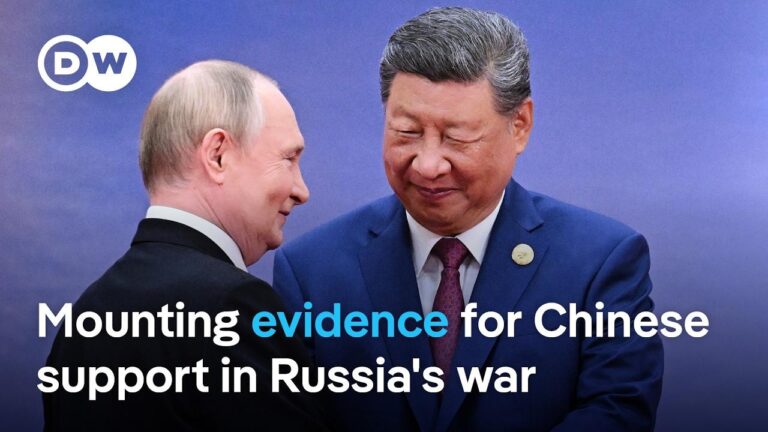In a developing story, the Associated Press has uncovered that Russia and Vietnam are reportedly leveraging profits from their energy sectors to circumvent potential U.S. sanctions tied to arms transactions. This strategic financial maneuver signals heightened complexities in international efforts to enforce arms control, as energy revenues provide both nations with pathways to mitigate the impact of punitive measures. The AP’s exclusive report sheds light on how these intertwined economic and geopolitical dynamics are shaping the global arms trade landscape amid increasing scrutiny from Washington.
Russia and Vietnam Channel Energy Revenues to Circumvent US Arms Sanctions
Sources reveal that Moscow and Hanoi have devised sophisticated methods to reroute energy revenues, effectively sidestepping potential U.S. sanctions tied to their ongoing arms transactions. By leveraging lucrative oil and gas deals, both countries are funneling profits through complex financial networks that mask the end use of funds, enabling continued defense cooperation without direct transactional scrutiny. This strategy not only complicates enforcement for U.S. regulators but also highlights how energy exports are increasingly used as geopolitical tools in circumventing international sanctions regimes.
Key mechanisms employed include:
- Utilizing state-owned energy enterprises as intermediaries to obscure arms-related payments
- Transferring funds through third-party countries with looser financial oversight
- Converting energy revenue into non-military assets to avoid triggering sanction thresholds
| Revenue Channel | Purpose | Implication |
|---|---|---|
| Oil Export Revenues | Funding procurement and upgrades of military hardware | Reduces traceability of arms financing |
| Gas Pipeline Transactions | Indirect payment for defense contracts | Creates financial buffers against sanctions |
| Energy Joint Ventures | Pooling profits to support shared defense initiatives | Strengthens bilateral military ties amid sanctions risk |
Impact of Energy-Backed Arms Deals on Global Security Dynamics
As Russia and Vietnam increasingly channel profits from their energy sectors into arms acquisitions, the traditional balance of power in global security landscapes is undergoing subtle but significant shifts. These nations leverage their energy revenues not only to bolster military capabilities but also to maneuver around stringent US sanctions that aim to curtail their defense-related transactions. This financial interlinkage provides them with an alternate currency, effectively insulating arms deals from international scrutiny and enforcement. The emerging strategy highlights the growing complexity of sanction regimes in a world where energy wealth can be rapidly converted into geopolitical leverage.
Such developments raise critical concerns among global security analysts, as the opaque nexus between energy profits and arms procurement may fuel regional arms races and destabilize fragile diplomatic equilibriums. Key implications include:
- Expansion of military hardware beyond traditional allies.
- Increased resilience against economic sanctions due to diversified revenue streams.
- Heightened unpredictability in conflict zones influenced by new arms influxes.
| Country | Energy Revenue (2023, $B) | Estimated Arms Spending ($B) | Sanctions Status |
|---|---|---|---|
| Russia | 200 | 65 | Targeted |
| Vietnam | 45 | 12 | Indirect |
| Others | – | – | Varies |
Policy Recommendations for Strengthening Enforcement Against Sanction Evasion
To effectively disrupt the sophisticated networks enabling the diversion of energy profits to circumvent U.S. sanctions, authorities must adopt a multipronged approach. Enhancing international cooperation with financial intelligence units and refining real-time data sharing can close gaps exploited by illicit actors. Enhanced transparency obligations for energy transactions and arms-related trade will equip enforcement agencies with crucial tools to detect and deter sanction evasion schemes. Moreover, the integration of advanced analytics, such as AI-driven transaction monitoring, can identify suspicious patterns that traditional oversight might miss.
Policy frameworks should also prioritize strict enforcement and punitive measures targeted at intermediary entities facilitating these covert financial flows. Key recommendations include:
- Mandatory beneficial ownership disclosures for companies involved in cross-border energy trade.
- Implementation of sanction compliance audits for banks and trading firms operating in vulnerable regions.
- Establishment of an interagency task force specializing in sanction evasion related to energy profits and arms deals.
| Policy Area | Action | Expected Impact |
|---|---|---|
| Transparency | Beneficial ownership reporting | Reduced anonymity for illicit actors |
| Technology | AI-driven transaction monitoring | Earlier detection of sanction evasion |
| Enforcement | Interagency task force creation | Improved coordination and accountability |
Future Outlook
As the geopolitical landscape continues to evolve, the emerging strategies employed by Russia and Vietnam highlight the complexities of international sanctions enforcement. Utilizing energy trade profits to circumvent potential U.S. measures related to arms dealings underscores the intricate interplay between global energy markets and security policies. Observers will be watching closely to see how Washington and its allies respond to these developments amid broader concerns over regional stability and international arms control.




